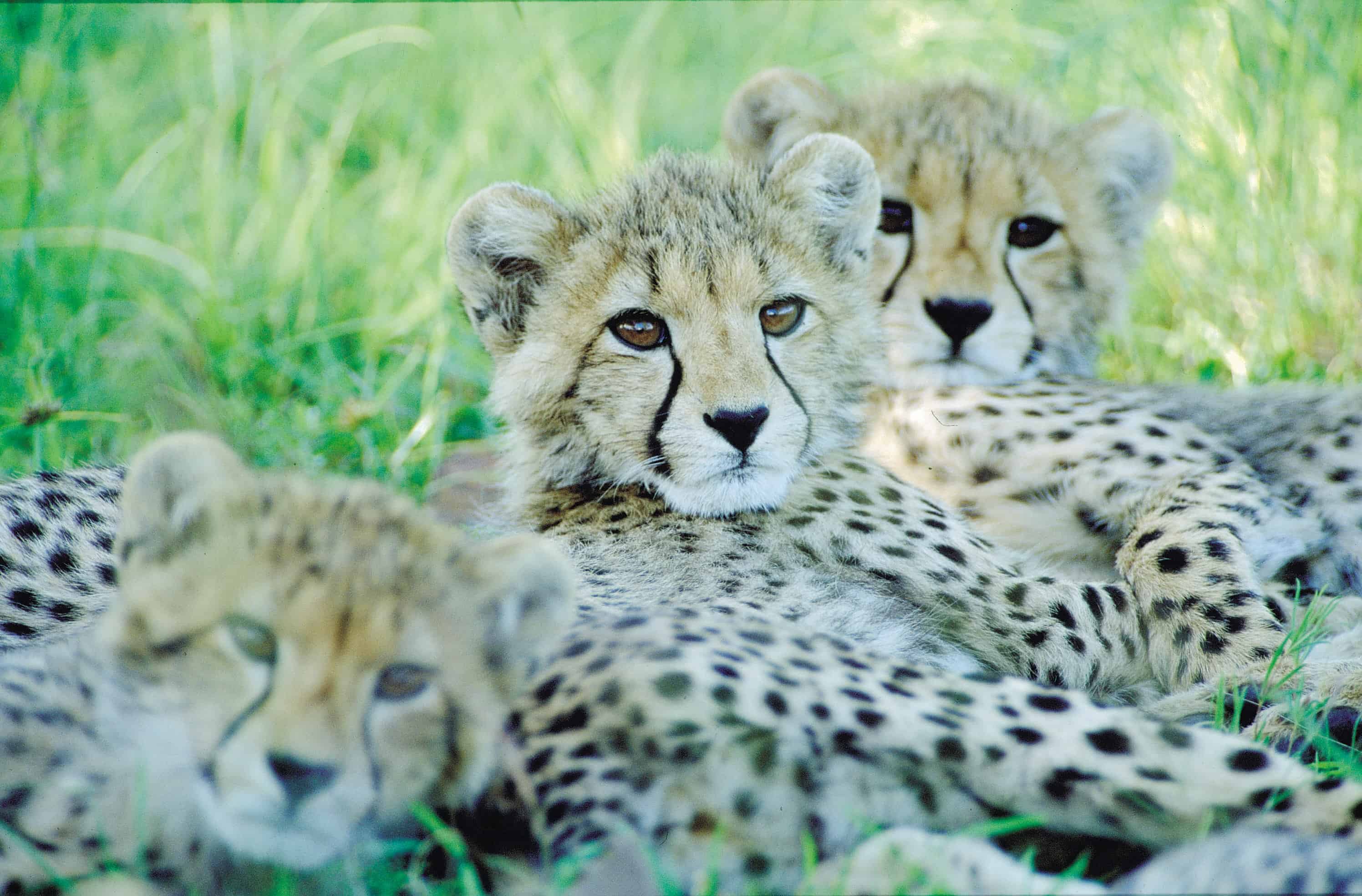 South African TourismBy Helena Zukowski
South African TourismBy Helena ZukowskiIn Africa, there is an odd illusion at night in which the velvet darkness seems to gather random sounds into an orchestra, blending and amplifying them until you seem to be sitting right in the string section. In Botswana, I woke up one morning at 3 a.m. from a deep sleep to the shuffling, grunting and snorting of hippos – sounds that should only have been a vague echo from the river beyond the marsh. They seemed oddly to be directly in front of my thatched hut at Khwai River Lodge.
I slipped through the mosquito net draped around my bed and peered out the screened-in windows. Peering right back at me, eyeball to eyeball, was a huge mother hippo with her baby, the pair of them looking totally at home on my deck. The night before, hyenas had yelped and yodelled and padded around the camp all night leaving their footprints on my verandah. Before that, it was baboons. When the two-legged creatures go to sleep in their African tents, the four-legged ones definitely come out to party.
Like so many people for whom South Africa has always seemed “beyond the beyond” this journey was the realization of a long-held dream of seeing “where the wild things are” before they disappear. Rangers and safari guides say sadly the days of being able to see herds of thousands of animals are gone: “You should have come 10 years ago,” they say. “Sometimes during the zebra migrations, the landscape would be black and white for days.”
It must have been extraordinary then because what remains is impressive. I watched wildebeest males in an extensive battle for control of a “harem” of ladies. I sat within six metres of a male lion and his pride of eight females and cubs. Later, as the African dusk slipped away into night, the females got up, stretched and began to walk right alongside our open Land Rover within touching distance. One morning, we followed a pack of eight gaudy looking wild dogs. They were on a hunt and were trailed by three hyenas that hung around hoping to clean up the scraps. I saw elephants galore, large herds of zebra migrating, herds of giraffe, ostrich, antelope and impala. In the tall grass, warthogs checked us out and Steenbok, Cape buffalo and kudus kept a wary eye open as they grazed.
My first camp, Tanda Tula in the Timbavati Game Reserve, was an 8,000-hectare private bushveld reserve adjacent to the vast Kruger National Park in the eastern Transvaal. Like many of the smaller camps, Tanda Tula is a tented camp – but tents that are a far cry from those you see when camping in Canada. The large luxurious thatched tents sit on raised platforms tucked away in the bush so you have the sense of being totally alone.
The rituals and rules of most safari camps are the same: you are assigned a ranger who asks you not to walk to your tent unaccompanied at night since elephants may be wandering around. Wake up time is around 5 or 5:30 each morning and departure is around 6 a.m. for the early morning game drive. For three or four hours, the drivers check out water holes or grassy places to find zebra, giraffe or lions.
Tanda Tula offers a lot more bush experiences such as walking trails, bush walks, sundowner drinks and snacks in the bush, sleep-outs in a hide, tracking skills, fauna and flora identification, stargazing in the riverbed and night game viewing.
My longest stay was at Savute Elephant Camp, a lodge famous for its lions – and of course its elephants. As we drove in on the dirt road from the airstrip, more than a dozen elephants grazed on the greenery right beside the road, along with giraffe, impala and zebra. Guides say they have seen as many as 200 elephants gathered at a water hole in the morning or at dusk. Another highlight at Savute was a drive into a rocky area where the remnants of Botswana’s earliest Bushmen recorded the abundant animal life in red paint on the flat rock faces. It was here that we caught the zebra migration, so many zebras they seemed to stretch beyond the horizon and although it did not go on for days, our zebras did truly seem to turn the world black and white.
 South African TourismOne morning we sat for ages only a few feet away from a sleek, graceful mother cheetah and her three cubs. Mama cheetah kept us in her line of vision but the cubs just rolled and batted each other as if they were completely alone.
South African TourismOne morning we sat for ages only a few feet away from a sleek, graceful mother cheetah and her three cubs. Mama cheetah kept us in her line of vision but the cubs just rolled and batted each other as if they were completely alone.More Southern Africa
For more information on South Africa visit South African Tourism at www.southafrica.net. For more information on Botswana, visit the Botswana Tourism Board at www.botswanatourism.co.bw.


